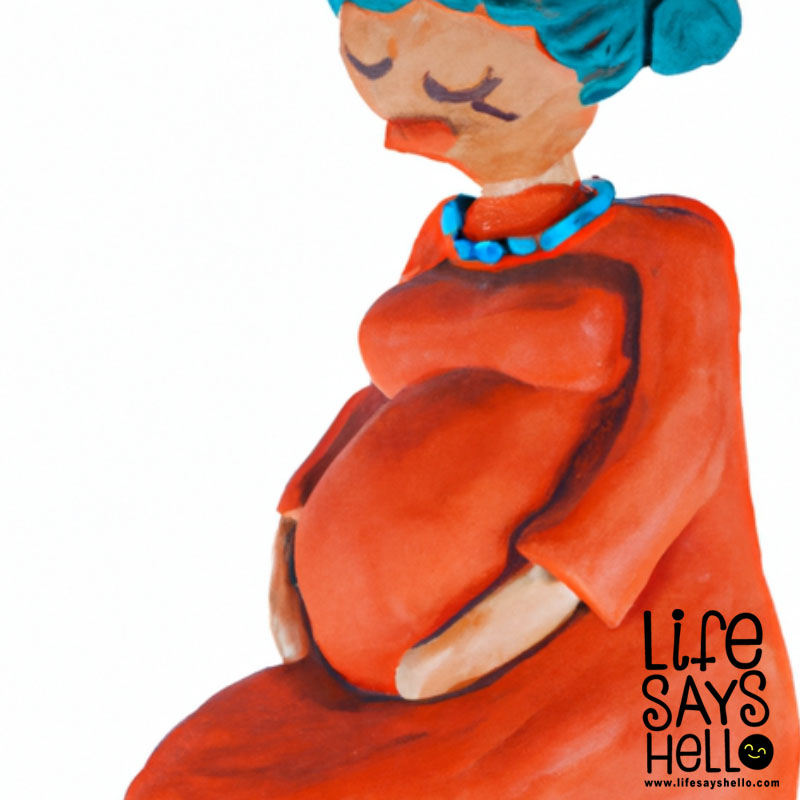When Do Babies Start Dreaming? A Complete Guide

As a new parent, you may have many questions about your baby’s development, including when they start dreaming. It’s essential to understand the sleep patterns of your baby to ensure that they get the necessary rest. Sleep is crucial for the development of your baby’s brain and physical growth.
In this guide, we’ll explore what dreams are, the stages of sleep, and when babies start dreaming.
What Are Dreams?
Dreams occur during the rapid eye movement (REM) stage of sleep, which is when our brains are most active. As we sleep, our bodies cycle through four stages of sleep, with the REM stage being the last stage.
During the REM stage, our brain activity is similar to when we’re awake, and our eyes rapidly move back and forth, behind our closed eyelids. This stage is also when we start dreaming.
Dreams are an integral part of our sleep cycle, allowing our brains to process emotions, memories, and new information.
The Stages of Sleep
As mentioned earlier, there are four stages of sleep, which our bodies cycle through, each lasting between 90 and 120 minutes. The progression of sleep stages is as follows:
Stage 1 (N1)
This stage is a light sleep stage, and it’s easy to wake up from it. During this stage, you may experience muscle jerks.
Stage 2 (N2)
This stage is a deeper sleep than N1, and it’s harder to wake up from it. You may experience a slowed heartbeat and decreased body temperature during this stage.
Stage 3 (N3)
This stage is a deeper sleep than N2, and it’s the stage where your body starts to fully relax, and your breathing slows down. It’s much harder to wake up from stage 3 sleep.
Stage 4 (REM)
This stage is when you start dreaming, and your brain activity is similar to when you’re awake. During this stage, your body is in a state of paralysis, which prevents you from acting out your dreams physically.
When Do Babies Start Dreaming?
Now that we understand the sleep stages let’s answer the question of when babies start dreaming.
According to various studies, babies start dreaming from as early as 26 weeks in the womb. This early stage of dreaming is essential for the development of the baby’s brain and promotes neural connections.
After birth, babies’ sleep patterns are different from adults, and they spend more time in REM sleep. Approximately 50% of newborns’ sleep is spent in the REM stage, compared to 20% in adults.
As babies grow, the time they spend in REM sleep decreases, and they start experiencing the other sleep stages. However, they still experience a higher amount of REM sleep than adults.
How Do Babies Dream?
Babies’ dreams are different from adults because they have limited experiences to draw upon. Babies frequently dream about things they have experienced, such as their parents’ faces, their home, and other daily routines.
While it’s challenging to understand what babies dream about, we can infer that their brains are processing the new information they experience throughout the day. This is one of the reasons why babies sleep so much - their brains need the time to process all the new information they acquire every day.
How Can You Help Your Baby Sleep Better?
As a parent, you want to ensure that your baby gets enough sleep to promote healthy growth and development. Here are some tips to help your baby sleep better:
Establish A Bedtime Routine
It’s essential to establish a bedtime routine to set your baby’s body clock. A bedtime routine may include a bath, a massage, and reading a bedtime story.
Create A Calm Environment
Creating a calm and quiet environment will help your baby feel safe and relaxed, promoting better sleep.
Keep Your Baby Cool
Ensure that your baby’s room is cool, and they are dressed in breathable clothing to prevent overheating.
Avoid Overstimulation
Overstimulation can cause your baby to become restless and inhibit sleep. You should avoid loud sounds, bright lights, and rough play before bedtime.
Conclusion
Babies start dreaming as early as 26 weeks in the womb, and they spend more time in the REM stage than adults. Their dreams are different from adults and are mostly based on their experiences throughout the day.
It’s essential to understand your baby’s sleep patterns to promote healthy growth and development. By establishing a bedtime routine, creating a calm environment, keeping your baby cool, and avoiding overstimulation, you can ensure that your baby gets the necessary rest.




Comments